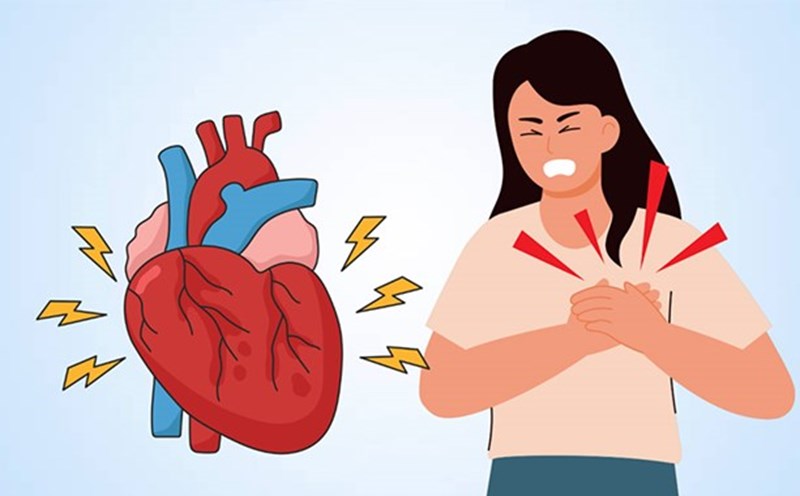Some symptoms of anxiety or panic attacks, such as rapid heartbeat, chest pain, and shortness of breath, can overlap with signs of a heart attack. According to Dr. Colleen Doherty (USA), recognizing the difference between these two conditions is vital, because heart attacks require emergency care, while anxiety does not cause heart damage.
Symptoms of panic attack
Anxiety is a normal reaction to stress, but when it reaches too high, it can spark panic attacks. Phania triggers incorrect fight-or-flight reactions, causing intense fear and strong physical symptoms, says Dr. Michael Menna, DO.
Symptoms often include: rapid heartbeat, sweating or burning, shaking, shortness of breath, pain or chest tightness, dizziness, numbness or tingling, nausea, fear of death or loss of control. Symptoms often appear suddenly and gradually subside within a few minutes to an hour.
Symptoms of a heart attack
Heart pain occurs when the blood flow to the heart muscle is blocked, often due to a blockage of the coronary artery. Warning signs include: pain or chest tightness (usually in the middle or left), pain spreading to the shoulders, neck, jaw, arms, back; cold sweat, shortness of breath, unusual fatigue, dizziness, nausea. Symptoms may start slowly and get worse.
How to distinguish importantly
Starting out: The disorder starts suddenly, the heart attack often starts slowly and then increases.
Typically: Anxiety accompanied by extreme fear; heart attack without typical "emotional symptoms".
Chest pain: Disorder causes spleen, accommodation; heart pain is often acute, throbbing and spreading.
Time: Disorder subsides after a few minutes; heart attack persists and gets worse.
Physical damage: Disorder does not harm the heart; heart attack can be fatal if not treated urgently.
When is emergency care needed?
If you are not sure if it is a panic or heart attack, always act as if it is a heart attack and call an ambulance immediately, recommends Dr. Menna.
Even people who have panicked should not be subjective. Every minute of delay in a heart attack increases the risk of permanent heart damage.
Distinguishing between anxiety and a heart attack is not always easy. However, paying attention to the initiation factors, nature and duration of symptoms will help with initial orientation. In case of suspicion, seek emergency medical services to ensure your safety.











